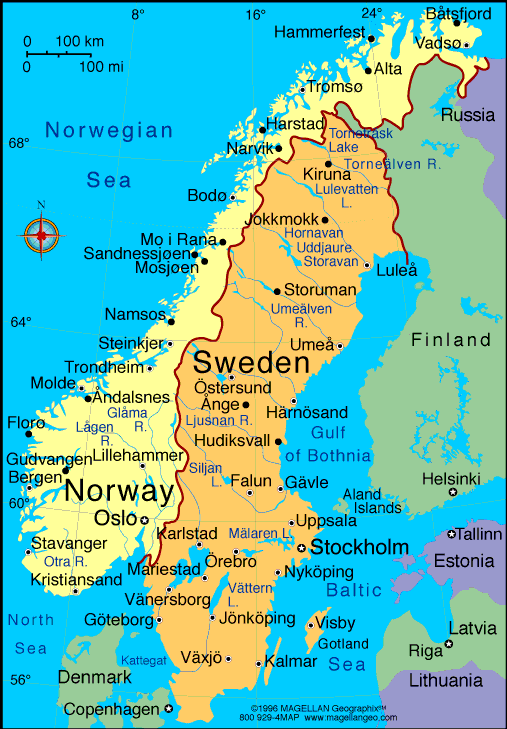DO ANY COUNTRIES WORK BETTER THAN THE U.S.?
ACTUALLY, THEY DO—QUITE A FEW

A common reaction to any serious discussion about the U.S.’s problems—and genuine discussion, in the form of considering each other’s views, is disturbingly rare—is the observation: “Yes, I know that America has a few problems, but so does every country. After all, look at Europe. It’s a mess.” And the word ‘mess’ is said with such glee.
Such comments, apart from displaying impressive (but common) ignorance, miss the whole point. What matters—at least in my view—is not primarily the growth of GDP, but the quality of life of the inhabitants (and here I do not mean 1 percent or a similar privileged elite—I mean ALL).
Let me also observe, in passing, that although parts of Europe face serious issues, large parts of it are positively thriving, and offer a quality of life that is generally superior to that of the U.S.
Let’s take Sweden, for example, and let me quote from an article by C. Fred Bergsten, in the Washington Post of August 29, 2013.
Sweden’s economic growth has been much higher than that of the rest of Western Europe, or the United States, since 2006. Data from the International Monetary Fund and the Organization for Economic Cooperation and Development show that Sweden has one of the lowest inflation rates in Europe; it runs a budget surplus every year; its corporate tax rates are considerably lower than U.S. rates; and it spends more on research and development, as a share of its economy, than we do. Its firms are highly competitive in the world economy, and it runs sizable current-account surpluses.
Sweden remains a social welfare society, and government spending still accounts for half of its economy; it finances all education and health care, as is common throughout Europe. Sweden did not dismantle the social system but, in addition to drastically reducing its costs, adopted macroeconomic and structural reforms to make it sustainable and greatly enhanced its efficiency by privatizing the delivery of many educational and medical services. The country’s guiding principle is that a successful social welfare society must be fiscally conservative and administratively efficient. This is the central Swedish lesson for the crisis countries of the euro zone and elsewhere.
Sweden now combines a social welfare society with a free-market economy and a high degree of government efficiency. The other Scandinavian countries pursue similar policies and have enjoyed similar success (if not quite as spectacular). This subregion of stability demonstrates that, with the right policies, European countries can prosper inside the euro zone (Finland, de facto Denmark) or outside it (Sweden and Norway).
You did know all that, didn’t you?
And these are the people we condemn outright as ‘socialists.’
No comments:
Post a Comment